Ex-Montreal Canadiens forward Sean Monahan was just the first domino to fall. At least Habs fans are hoping that’s the case ahead of the 2024 trade deadline, with so many other players that general manager Kent Hughes must want to trade on some level.
Related: Canadiens Show Their True Selves as Sellers Ahead of 2024 Trade Deadline
Unfortunately, to quote the Rolling Stones, “you can’t always get what you want.” With that, how must everyone’s collective liquidation wish list look? Here are the top players who would ideally be traded, in order of priority level:
7. Brendan Gallagher
In a manner of speaking, this list is very similar to one of the worst current Canadiens contracts. The reason Brendan Gallagher takes the top spot on that one, but not here is simple: He has a no-movement clause and a modified no-trade clause, meaning, as Montreal Hockey Now’s Marc Dumont explains, “the team will have to work in conjunction with Gallagher if a deal is to occur.”
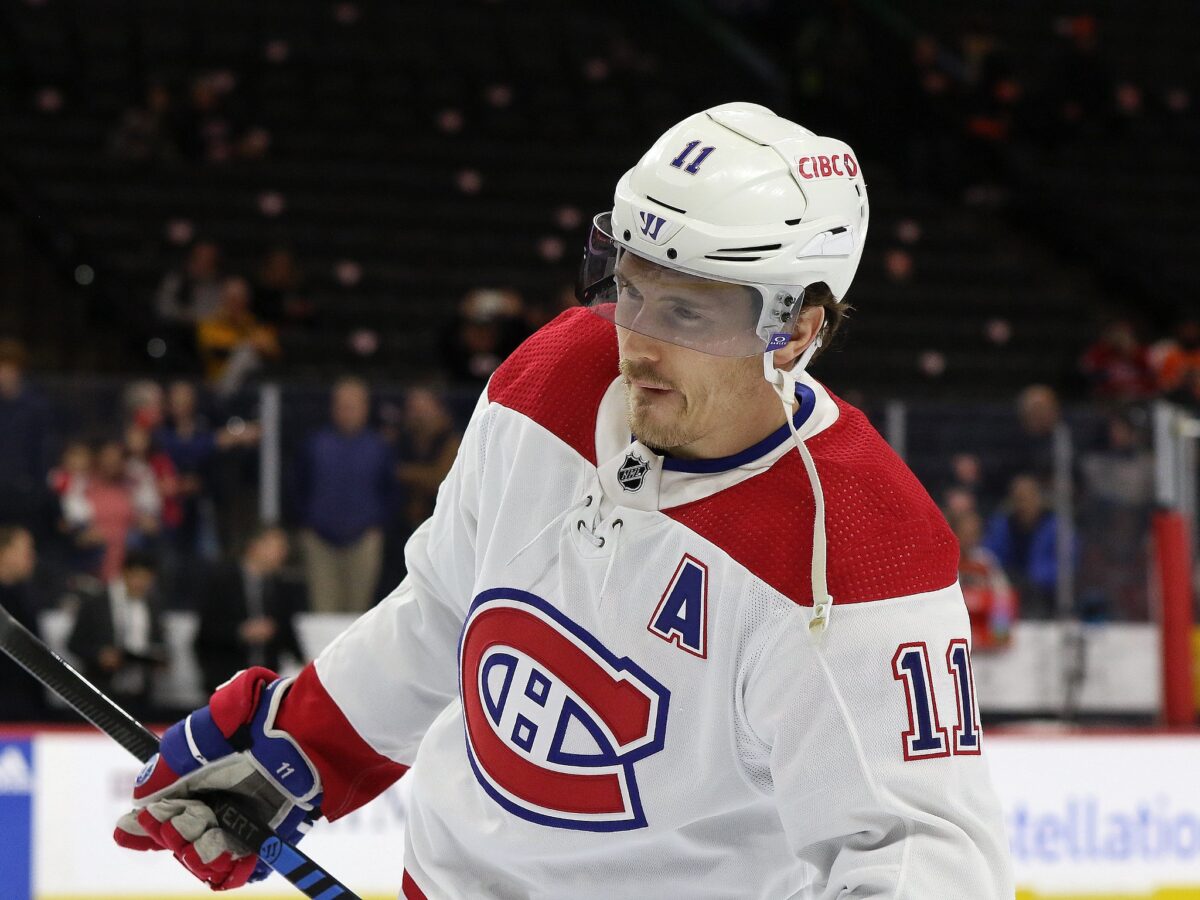
So, trading Gallagher has to be approached as nice-to-have, not a must, because it’s so inherently unlikely. On top of his exorbitant $6.5 million cap hit for three more seasons, he has just 16 points in 48 games, with all the injuries seemingly having caught up to him (even if he’s stayed healthy this specific season). So, Hughes must shift his focus to other options to make the most of this rebuild. To recap: Ideally, Gallagher goes, but realistically he stays.
6. Mike Matheson
Defenseman Mike Matheson is almost in the polar-opposite situation as Gallagher, in that he’s probably the one Canadiens player who might be available with the most trade value. He’s just 30, with 36 points scored in 50 games so far this season (a 59-point pace). Combined with a cost-effective $4.875 million hit for two more seasons, Matheson’s hypothetical appeal to other teams isn’t exactly hard to pinpoint.
Matheson is also a left-handed defenseman, with the left side being the biggest source of the team’s log jam. The thought process is, to make room for younger lefties like Kaiden Guhle, Jordan Harris, Jayden Struble and Arber Xhekaj, someone must go. However, it shouldn’t necessarily be the one veteran, when that one veteran is still relatively young, on a great contract and is the most productive of the bunch, with conceivably a whole lot more to offer.
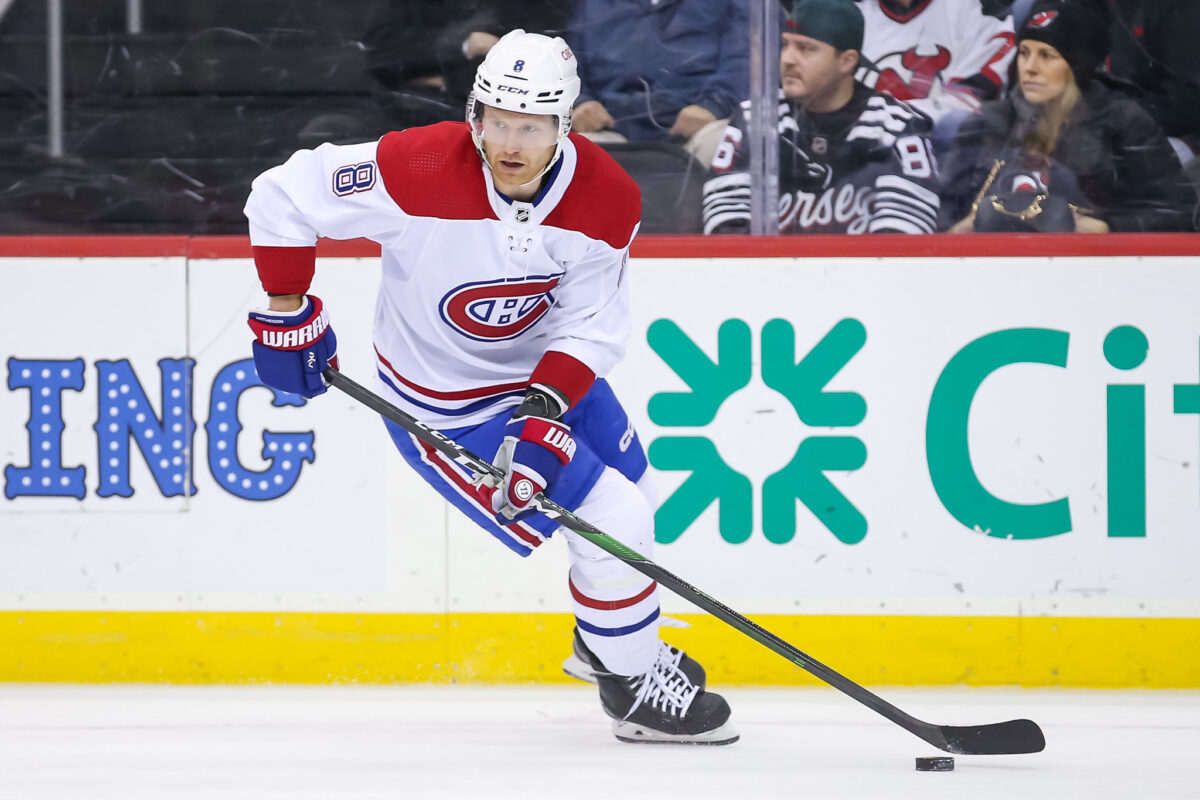
Head coach Martin St. Louis has taken to experimenting with several of those defensemen on the right side. Of the bunch, Harris has spent the most time there, which makes one think he’s seen as the most expendable. Even so, it’s hard to put him on this list, when you’d probably trade or at least should want to trade some righties ahead of him.
5. David Savard
That last statement includes Chris Wideman in principle, just not in practice as the depth defenseman remains injured. So, in terms of righties ready to be shipped out, the Canadiens have just two on the roster in David Savard and Johnathan Kovacevic.
Some could argue Justin Barron hasn’t fit in as expected and could be a trade chip. However, seeing as he’s in the American Hockey League and still waiver-exempt, let’s assume the Canadiens are content to give him at least the balance of this season to find his place in the organization.
Between Savard and Kovacevic, the choice is clear. Savard is four times more expensive and seven years older. However, Savard is also the purest stay-at-home defenseman they have. And, while that style seemingly clashes with Hughes’ initial offensively inclined vision for the team, it’s not like Savard is a bad fit, as someone with championship experience who could step into more of a leadership role.
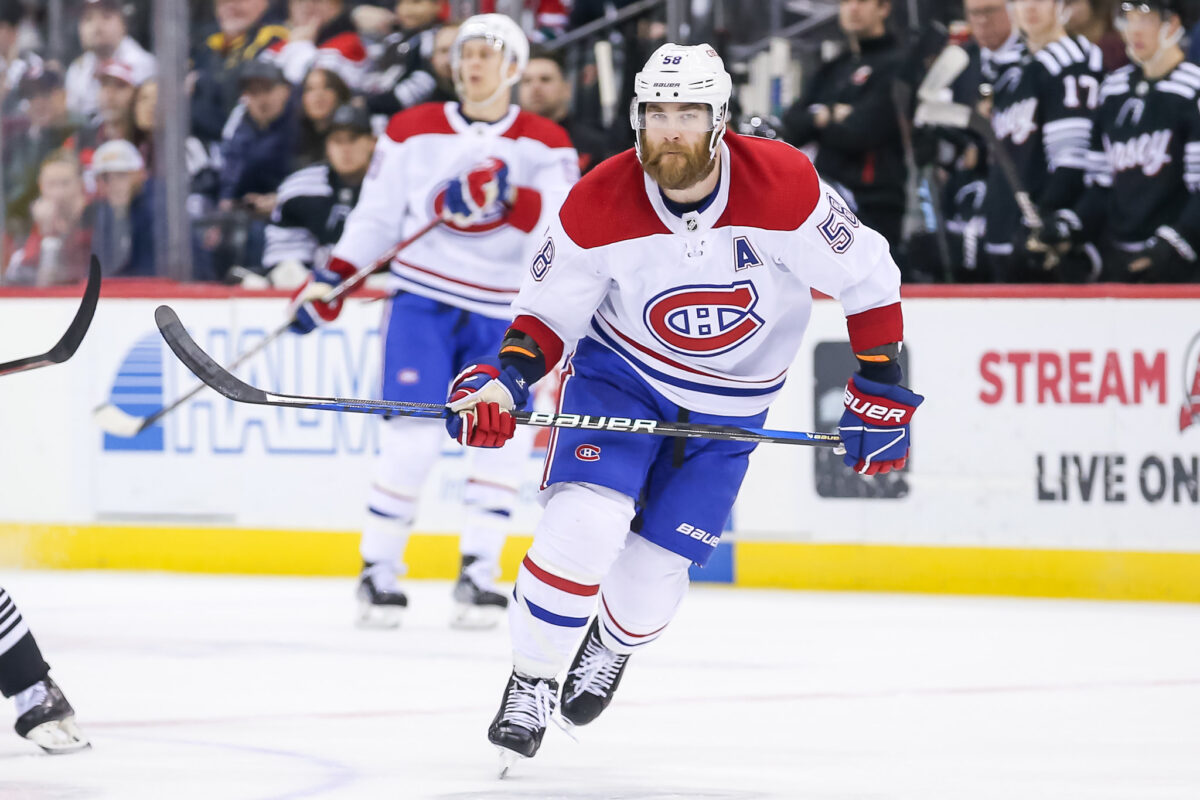
The bottom line is, Savard doesn’t need to go. Due to the lack of righthanded shots, there’s probably a better case for the Canadiens to keep him until next season before his contract expires. So, you can file him under “take it or leave it” as far as trading him is concerned.
4. Joel Armia
Hughes made a big statement when he demoted veteran Joel Armia to start the season. It said that the Canadiens are better without him in the lineup. Cue the almost-inevitable rush of injuries, prompting the Habs to call him up from the AHL (a few times).
To his credit, Armia’s made the most of his latest chance. He’s proven he still has value to the Canadiens, as a depth forward. However, when you have a $3.4 million cap hit, the hope is you pan out as something more, especially as a former 16th-overall pick (2011).

Ultimately Hughes had it right. He had to demote Armia in that his roster spot is best served as someone else’s, at least someone with more of a future in the organization. For all he has to offer, Armia is simply unlikely to stay with the team past his current contract, which expires in 2025. So, everyone is probably hoping the Habs parlay this latest quasi-successful run in the NHL of his into a trade elsewhere.
3. Tanner Pearson
You’re not going to get much for Tanner Pearson. If anything, his 2023-24 season has shown the Vancouver Canucks were right to throw him into the Casey DeSmith trade last offseason, when, from the Canadiens’ perspective, the 2025 third-round pick should have sufficed.
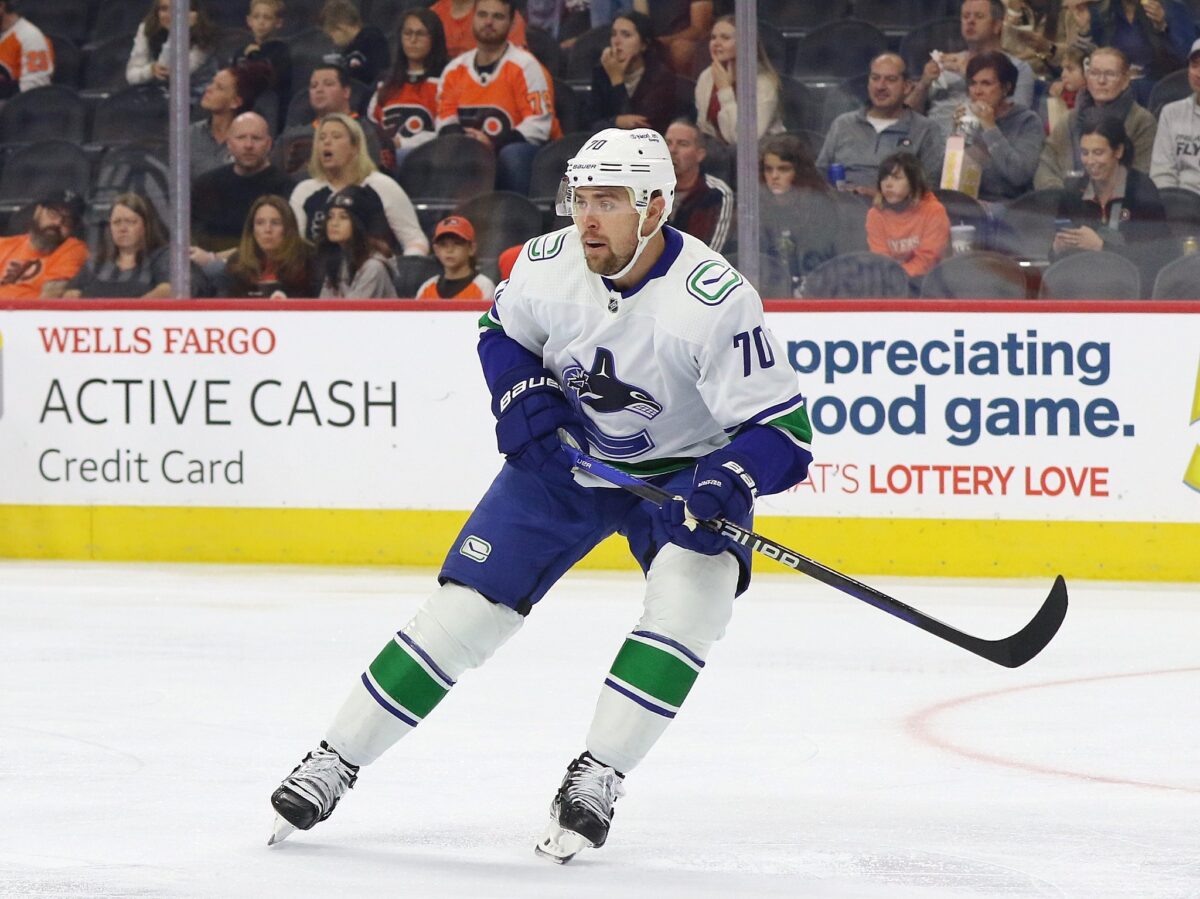
Pearson has eight points in 31 games, which is even more depressing considering he had five points in his first five games with the Canadiens. So, it’s not like buyers are going to be breaking down the door trying to get at him. Really, he’s probably Option D on the lists of contending teams looking for some grit for the playoffs.
So, no one’s going to be offering more than a late-round draft pick… and the Canadiens should take it, just for the simple reason Pearson’s a pending unrestricted free agent. Not only are you going to lose him. You’re most definitely not going to re-sign him. You may as well get what you can in exchange, as cold as that may be.
2. Josh Anderson
The time to sell high on Josh Anderson has long since passed. It’s more so a matter of getting whatever you can for him, assuming the Canadiens try to move him at this point. And they should.
Anderson obviously had a good December, during which he scored six goals and three assists for nine points in 13 games. He won the Molson Cup as a result, but the thing is there were players who were more prolific that month, probably even more valuable… and the 57-point pace at which he scored is arguably the pace at which he should be scoring all the time considering his $5.5 million cap hit.
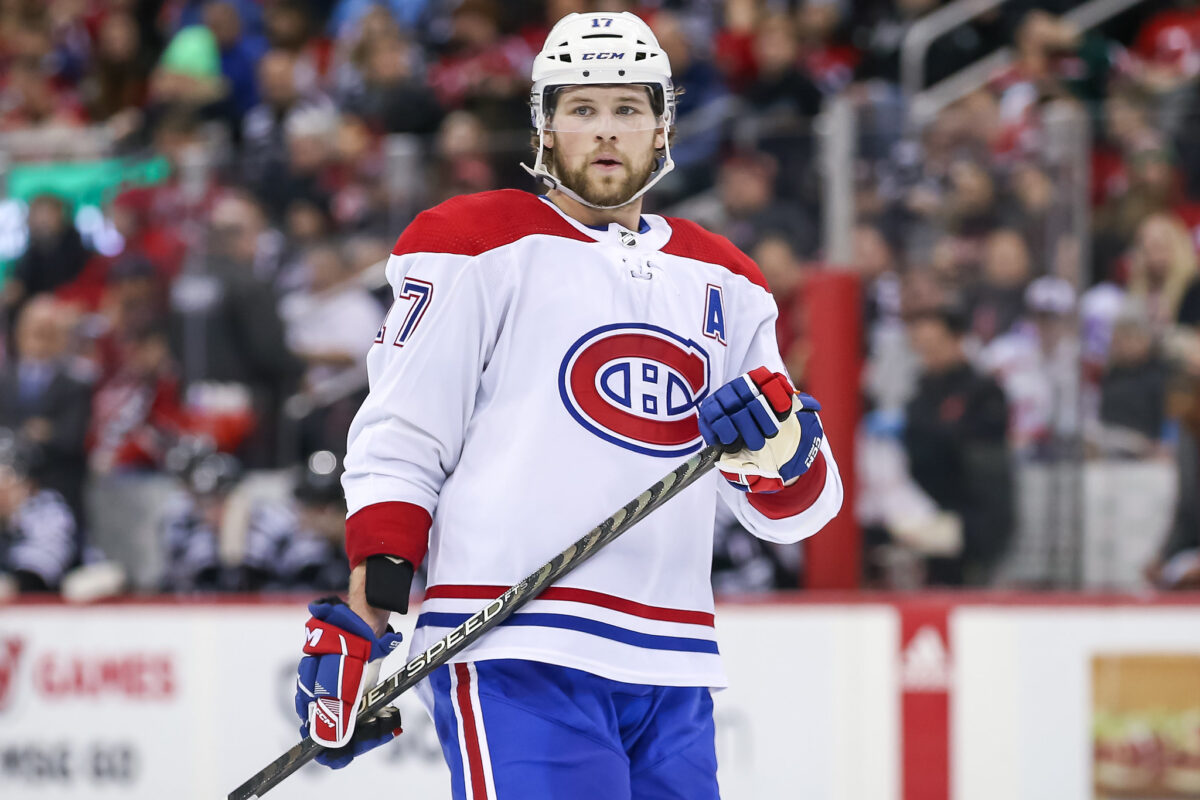
Unfortunately, Anderson simply hasn’t, with four points scored the rest of the season for a total of 13 in 46 games. If Gallagher needs to go having scored 16 in 48, any opportunity to move Anderson must be considered too, regardless of the other assets he undeniably brings to the table as a speedy and physical power forward.
There’s just no denying Anderson has failed to replicate the offensive touch he displayed that one season with the Columbus Blue Jackets in 2018-19, when he scored 27 goals (and a modest) 47 points. Five seasons later, he’s on the verge of turning 30 and infinitely more likely to decline than to suddenly become a consistent offensive force. That’s not a controversial take. It’s cold, hard logic.
1. Jake Allen
In fairness, maybe you can add an “or Cayden Primeau” to the header above. However, the Canadiens most definitely need to trade one of their three goalies and Jake Allen is the best candidate to be the odd man out.
Think about it: Samuel Montembeault has shown the most upside of the three, with a 12-7-4 record with a 3.06 goals-against average (GAA) and .907 save percentage (SV%). He probably has the most value of the three on the trade market, but the Canadiens also just extended him for three seasons, meaning they’re unlikely to move the 27-year-old late-bloomer, who’s realistically in his prime right now.
Primeau is meanwhile three years younger with two years left under a cost-effective contract, after which he’ll still be a restricted free agent. Just about all the reasons you’d keep Montembeault in the fray apply to Primeau.
Then there’s Allen, who, like Anderson, is more likely to decline (further) at 33. In Allen’s defense, his numbers have improved, when they had dropped each previous season since he joined the Canadiens in 2020 to be Carey Price’s backup. However, by virtue of the fact there are now three goalies instead of just two, his workload has also decreased… and he’s still not getting the job done as one might hope.
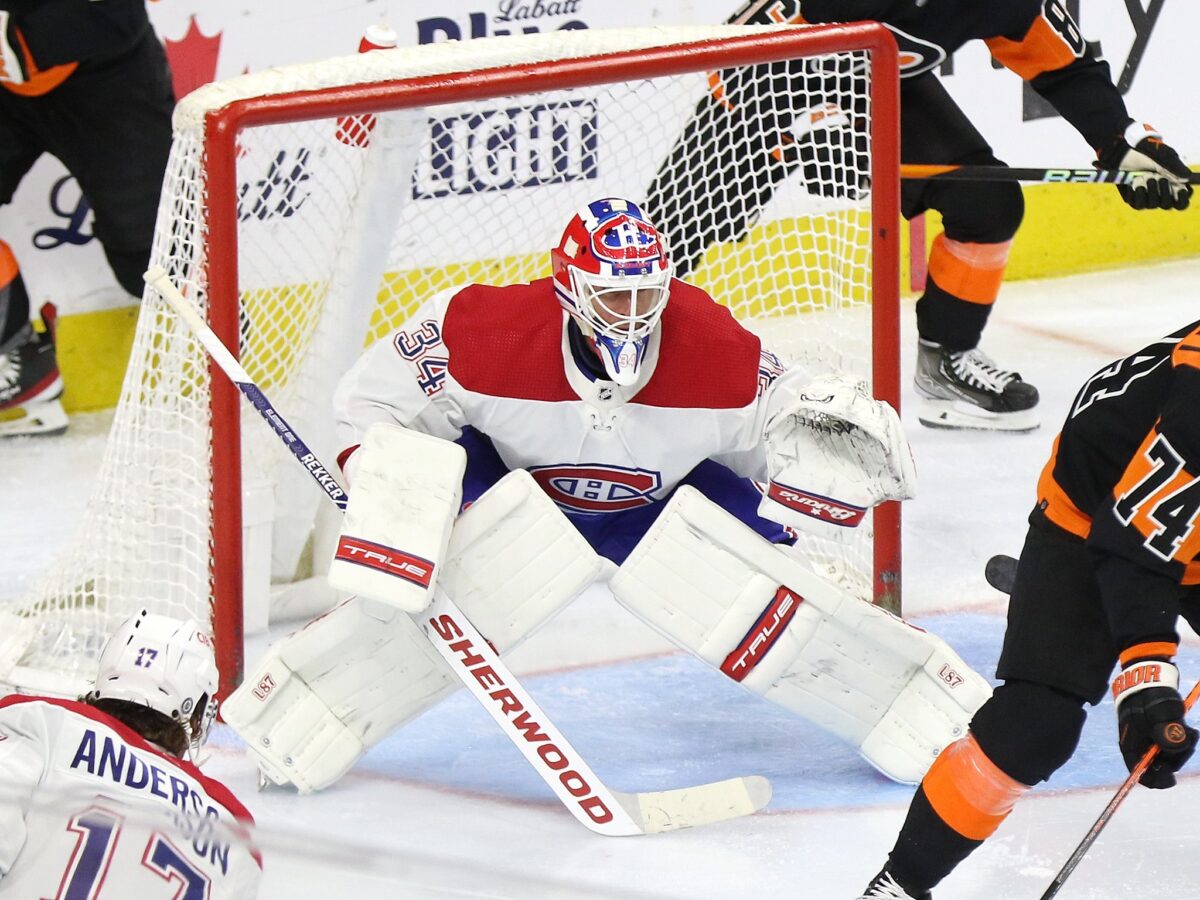
Granted, Allen hasn’t exactly gotten a lot of goal support and he’s playing behind a weak defensive team. The actual hope should be other teams in need of goaltending see it that way too, because there just isn’t room for him on the Canadiens anymore.
To be clear, it’s not like Allen has played badly or Primeau has played exceptionally. They’ve been interchangeably okay. However, if you have a choice under those circumstances, you keep the younger goalie with more potential for the future, who’s on a cheaper contract to boot.
Sure, Allen’s deal isn’t horrible per se. It’s not like the $3.85 million cap hit will make or break the Canadiens this season or next, after which his contract expires. Neither will the cap penalty of burying him either, though. There are arguments to keep Allen in that his experience as a veteran is valuable and Primeau is a lost cause. However, in such instances, wouldn’t Allen be of more use in the AHL mentoring the likes of Jakub Dobes? Because he just isn’t getting the ice time to justify his contract… and, as has been proven the last few seasons, even if he were, his performance would suffer.
So, given the opportunity, Hughes must trade Allen. If that opportunity doesn’t present itself, demote him when you can even if it means taking a risk someone claims him. With neither him, Primeau nor Montembeault getting a fair shot to get in a groove, it’s worth that risk. If you’re of the belief it’s actually preferable, take it as a sign Allen should go one way or another, because the status quo can’t be an option.
